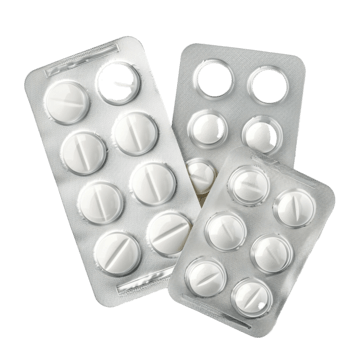Atenolol

Atenolol 25mg, 50mg, 100mg
Atenolol is a selective beta-1 adrenergic blocker commonly prescribed for the management of hypertension (high blood pressure) and angina (chest pain). By reducing the heart rate and the force of heart contractions, atenolol helps lower blood pressure and improve blood flow. It is also used in the prevention of migraines and to enhance survival after a heart attack, providing patients with a safer heart function and reducing the risk of further cardiovascular complications.
Order NowDescription
Atenolol is a selective beta-1 adrenergic blocker (beta-blocker) that is primarily used to manage high blood pressure and reduce the risk of complications following a heart attack. By blocking beta-1 receptors in the heart, Atenolol helps to lower heart rate, reduce the force of contraction, and decrease the workload of the heart.
Uses / Indications
- Hypertension (high blood pressure)
- Angina pectoris (chest pain due to heart-related issues)
- Management of heart rate in certain arrhythmias
- Secondary prevention of heart attacks
- Prevention of migraine headaches (off-label use)
Dosage and Administration
Adults:
The usual starting dose for hypertension is 25 mg to 50 mg once daily. Dosage may be adjusted by your doctor based on response and blood pressure readings.
Children:
Dosing for children is individualized based on their specific medical condition and should be determined by a healthcare provider.
Note: Dosage may vary based on individual health status and doctor’s advice.
How It Works (Mechanism of Action)
Atenolol works by selectively blocking the beta-1 adrenergic receptors in the heart. This inhibition reduces the effects of adrenaline, resulting in decreased heart rate and lower blood pressure, ultimately leading to a reduced workload on the heart.
Side Effects
Common side effects:
- Fatigue or tiredness
- Dizziness or lightheadedness
- Cold hands and feet
- Nausea
Rare/serious side effects:
- Slow heart rate (bradycardia)
- Severe allergic reactions (rash, itching, swelling)
- Breathing difficulties (particularly in those with asthma)
Seek medical attention if serious side effects occur.
Precautions / Warnings
- Inform your doctor if you have asthma, diabetes, or thyroid problems
- Use caution when performing activities requiring alertness, especially when starting the medication
- Abruptly stopping Atenolol may worsen heart conditions – follow your doctor’s tapering instructions
Drug Interactions
May interact with:
- Other blood pressure medications
- Calcium channel blockers
- Nonsteroidal anti-inflammatory drugs (NSAIDs)
- Antidepressants and medications that affect serotonin levels
Always inform your healthcare provider about any other medications or supplements you’re taking.
Storage Instructions
- Store at room temperature (20°C–25°C / 68°F–77°F)
- Keep away from moisture, heat, and direct light
- Keep out of reach of children
Missed Dose / Overdose
Missed a dose?
Take it as soon as you remember. If it’s almost time for your next dose, skip the missed one. Do not double up.
Overdose symptoms:
- Severe dizziness or fainting
- Bradycardia (slow heart rate)
- Shortness of breath
- Severe fatigue
Contact a poison control center or seek emergency medical help immediately.
Contraindications
- Allergic reaction to Atenolol or other beta-blockers
- Severe bradycardia or heart block
- Cardiogenic shock
Brand Names / Alternatives
- Tenormin
- Atenolol (generic)
- Atenolol-AFT
- Atenolol Sandoz

